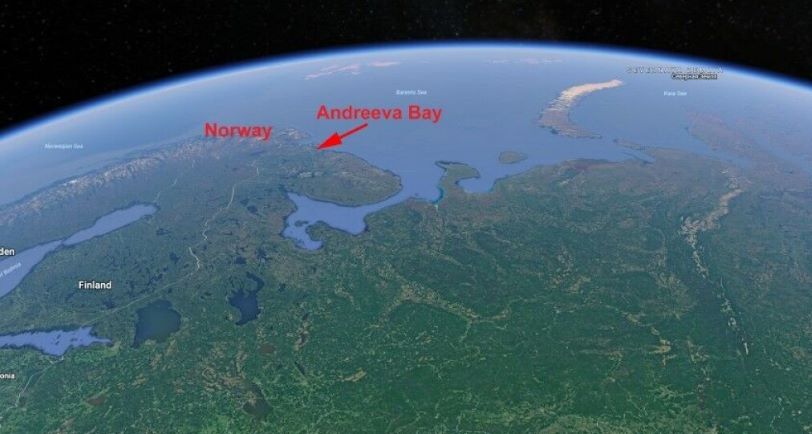Russia denounces nuclear waste management agreement with Western donors
The Russian government has recently submitted a draft law to the State Duma to unilaterally denounce the Framework Agreement on the Multilateral Nuclear Environmental Program (MNEPR), which was signed in 2003 in Stockholm to help Russia cope with the expensive nuclear and radioactive cleanup operations in the Arctic region.
This agreement has facilitated international cooperation and provided significant funding and equipment from countries like Norway, the E.U., and the U.S., with resources being used to address critical environmental concerns, such as the disposal of spent nuclear fuel, the decommissioning of nuclear submarines, and the remediation of contaminated sites like Andreyeva Bay in the Murmansk region.

Radioactive waste sealed in "bottles" in Andreyeva Bay. Credit: Bellona Foundation
Moscow cited “the de facto halt of cooperation within MNEPR since 2015-17” as the reason to tear off a major money-line and technical assistance obligation from the West; once denounced, it cannot be reinstated.

Used nuclear fuel stored in open airin Andreyeva Bay. Credit: Bellona Foundation
The decision marks a turning point with potentially far-reaching consequences, increasing the radiation risks across the Arctic.
Unfinished projects, such as the cleanup of Andreyeva Bay and the retrieval of submerged nuclear submarines from Arctic waters, could exacerbate environmental and safety threats – especially concerning fisheries, maritime navigation along the Northern Sea route, and future resource extraction in the region.
According to Alexander Nikitin, a nuclear expert with the Bellona Foundation, the rationale behind this decision reflects Russia's current geopolitical stance, characterized by a rejection of Western cooperation and increased secrecy.

Andreyeva Bay on map. Credit: Google
Nikitin emphasizes that this decision not only disrupts ongoing initiatives but also undermines any potential for future international efforts to address nuclear hazards in the Arctic. The expert warns that if Russia reverts to practices reminiscent of the Soviet era - accumulating nuclear and radioactive waste without adequate disposal measures - the situation may regress to pre-MNEPR conditions, posing severe environmental and safety challenges.
The long-term consequences of this decision are stark. By severing ties with international partners, Russia risks losing access to expertise, funding, and technological support essential for addressing its nuclear legacy.

Russian submarine cemetery in Murmansk, another site for potential radioactive leakage. Credit: Bellona Foundation
Should Russia fail to independently complete the projects initiated under the MNEPR, the Arctic could face escalating radiation risks, endangering ecosystems, livelihoods, and regional stability. Moreover, this move isolates Russia further on the global stage, making the prospect of future collaboration increasingly unlikely, even in a post-conflict geopolitical landscape.
The program had been financed by Belgium, Denmark, Finland, France, Germany, the Netherlands, Norway, Sweden, the United Kingdom, the United States, and the European Atomic Energy Community.
More to read:
A new nuclear disaster is looming in eastern Ukraine
While exact figures are not publicly detailed, reports indicate that the West’s assistance amounted to $20 billion over the years. The Russian government had contributed around $10 million.
The Russian Federation has not disclosed the volume of stored and lost radioactive and nuclear materials in the Arctic.
***
NewsCafe is an independent outlet that cares about big issues. Our sources of income amount to ads and donations from readers. You can support us via PayPal: office[at]rudeana.com or paypal.me/newscafeeu, or https://buymeacoffee.com/newscafe. Any amount is welcome.




![[video] Japanese company introduces $16 USB-C cable with 360-degree rotation](/news_img/2024/12/22/news1_mediu.jpg)

